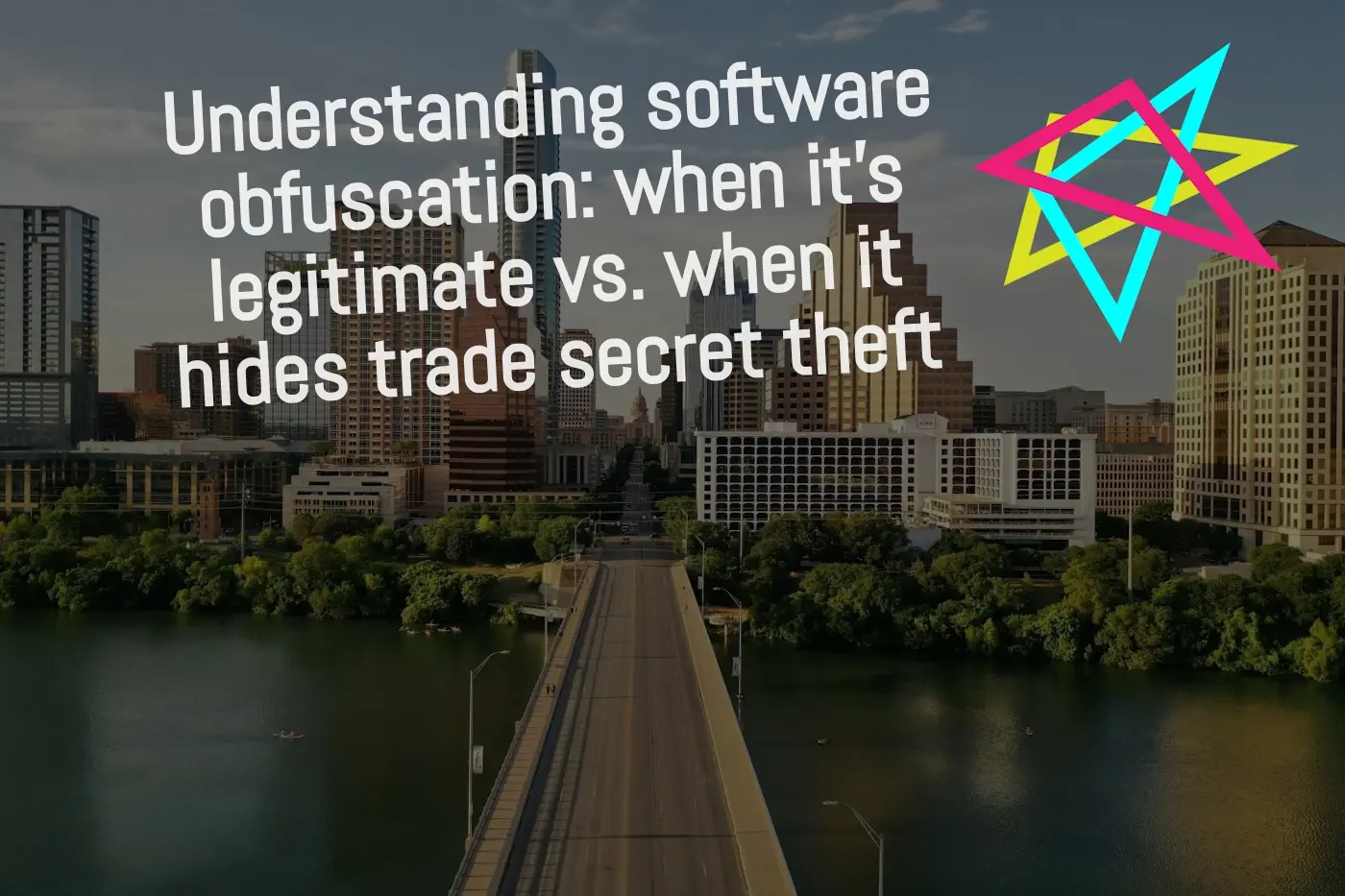
The legal implications of AI in software development: expert witness insights
As AI-driven software becomes more prevalent, it brings complex legal challenges. From intellectual property disputes to concerns over algorithm transparency and bias, the legal landscape surrounding AI development is evolving rapidly.

Artificial Intelligence (AI) transforms software development and revolutionizes industries with automated decision-making, predictive analytics, and machine learning models. However, as AI-driven software becomes more prevalent, it brings complex legal challenges. From intellectual property disputes to concerns over algorithm transparency and bias, the legal landscape surrounding AI development is evolving rapidly. In this article, we explore the critical legal implications of AI in software development and the role of expert witnesses in resolving disputes.
Ownership and IP Rights in AI: Who Owns AI-Generated Content?
One of the most debated issues in AI software development is ownership and intellectual property (IP) rights. Traditional software IP laws were designed for human-created content, leaving gaps when AI autonomously generates code, images, or other creative works.
Key Legal Challenges:
- AI-Generated Code and Copyright: Who holds the copyright to AI-created code— the developer of the AI model, the user deploying it, or the AI itself?
- Patentability of AI-Driven Innovations: Can AI-generated inventions be patented, and who should be recognized as the inventor?
- Use of Open Source and Proprietary Data: AI often learns from vast datasets, which may include proprietary or copyrighted material. This raises concerns about data licensing and fair use.
Expert Witness Insights:
Eureka’s expert witnesses assist courts by analyzing AI-generated outputs to determine originality, compliance with copyright and patent laws, and potential infringement on existing IP rights. Their insights help resolve developer, company, and user disputes over AI ownership and licensing agreements. They assess whether AI-created works demonstrate significant human involvement or whether the output is purely machine-generated, influencing how courts determine copyrightability. Additionally, they evaluate licensing terms and contracts to ascertain whether AI-generated content aligns with regulatory requirements and contractual obligations. By providing an in-depth analysis of software development workflows, Eureka’s experts clarify the intersection of AI, intellectual property, and legal liability. They also help businesses draft and negotiate AI-related contracts to ensure clear ownership and avoid future disputes.
Algorithm Transparency: The Challenge of Black Box AI
Many AI models operate as “black boxes,” meaning their decision-making processes are not easily interpretable. This lack of transparency poses significant legal and ethical challenges, particularly in high-stakes healthcare, finance, and criminal justice applications.
Key Legal Challenges:
- Accountability in AI Decisions: When AI makes an incorrect or biased decision, who is responsible—the software developer, the user, or the AI system itself?
- Regulatory Compliance: New laws, such as the EU’s AI Act, require AI models to be explainable and auditable, challenging companies that use opaque AI algorithms.
- Bias and Discrimination: AI models trained on biased data can produce discriminatory outcomes, leading to lawsuits and regulatory scrutiny.
- Ethical Considerations: Businesses must ensure that their AI-driven decisions align with ethical best practices and avoid harming individuals or groups unintentionally.
Expert Witness Insights:
Eureka evaluates AI models to determine whether their algorithms comply with transparency regulations and ethical AI standards. Their experts assess whether AI systems have been adequately documented and whether their decision-making processes can be explained in court, helping judges and juries understand the impact of AI on litigation. Additionally, they conduct forensic analysis of AI decision-making processes to assess whether biases exist and determine how these biases may have influenced outcomes. Eureka’s team guides best practices for AI transparency, including recommendations for documentation, auditability, and compliance measures that businesses can implement to prevent legal issues.
The Role of Expert Witnesses in AI Disputes
Given the complexity of AI-related legal cases, expert witnesses are crucial in interpreting technical issues and providing objective analysis.
How Eureka Software Assists in AI Litigation:
- Assessing AI Compliance with Legal Standards: Eureka’s experts evaluate whether AI systems adhere to industry regulations and intellectual property laws.
- Investigating AI Bias and Discriminatory Outcomes: They identify unintentional bias or unfair practices by auditing AI training data and modeling behavior.
- Explaining AI Systems to Non-Technical Audiences: Judges and juries often lack technical expertise in AI. Eureka’s experts translate complex AI concepts into clear, legally relevant testimony.
- Evaluating AI Code and Data Usage: Expert witnesses determine whether AI-generated software infringes on existing copyrights, patents, or data privacy laws.
- Determining AI Accountability: By analyzing AI decision-making logs and workflows, Eureka’s team helps pinpoint responsibility in AI-related disputes, providing crucial insights into liability questions.
- Advising on AI Governance Frameworks: Eureka provides businesses with expert guidance on establishing AI governance policies that align with evolving legal standards, helping to preempt legal risks before they arise.
We Want To Help
As AI shapes software development, its legal implications will only grow in complexity. Ownership disputes, algorithm transparency, and accountability concerns present new challenges for businesses, developers, and regulators. Expert witnesses, like those at Eureka, are critical in navigating these legal complexities, offering deep technical analysis and helping courts make informed decisions in AI-related cases. By staying ahead of evolving AI regulations and industry best practices, businesses can minimize legal risks and ensure their AI innovations remain ethical and legally sound. Organizations that proactively integrate AI governance frameworks and transparency measures will be better positioned to avoid litigation and foster trust in AI-driven systems.










